

The African Climate Week is organized by the Nairobi Framework partners: the United Nations Framework Convention on Climate Change (UNFCCC), the United Nations Environment Programme (UNEP) along with the UNEP DTU Partnership (UDP), the International Emissions Trading Association (IETA), the World Bank Group (WBG) and the Africa Development Bank (AfDB).
Based in Bonn, Germany, the United Nations Framework Convention on Climate Change (UNFCCC) secretariat provides organizational support and technical expertise to the negotiations and institutions of the UNFCCC and the Kyoto Protocol. Included in this mandate is support to the Executive Board of the clean development mechanism (CDM), through which projects in developing countries can earn saleable credits by reducing greenhouse gas emissions. To date, there are more than 7,500 registered projects in 105 countries. The CDM is recognized as a success in spurring investment in climate change mitigation and sustainable development although regional distribution of the projects remains open for improvement.
United Nations Framework Convention on Climate Change (UNFCCC)
Contact: Luca Brusa, [email protected]
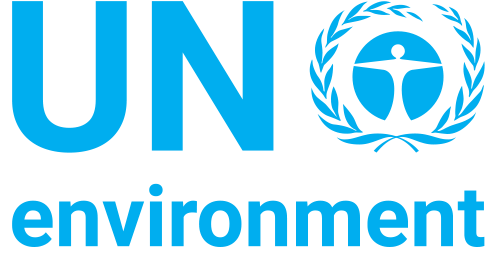
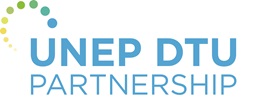
is the United Nations’ designated entity for addressing environmental issues at the global and regional level. Its mandate is to coordinate the development of environmental policy consensus by keeping the global environment under review and bringing emerging issues to the attention of governments and the international community for action. UNEP’s work emphasizes strengthening links between environmental sustainability and economic decision-making, an emerging nexus for public policymaking and market development. In the area of climate change, UNEP's approach aims at reducing barriers to market development, building capacities, and easing the costs and risks of entry of new actors, in both the public and private sectors. As a founding member of the Nairobi Framework, UNEP works on a range of activities to help developing countries become more active in the carbon market and achieve low carbon development.
Contact: Miriam Hinostroza, [email protected]
is a non-profit business organization of major companies and the leading voice of this community on emissions trading, whose goal is to ensure that the objectives of the United Nations Convention on Climate Change and, ultimately, climate protection, are met. IETA works for the development of an active, global greenhouse gas market, consistent across national boundaries. IETA currently has over 175 member companies from around the world, including global leaders in oil, electricity, cement, aluminum, chemical, paper and banking; as well as leading firms in the data verification and certification, brokering and trading, legal and consulting industries. IETA members seek to develop an emission’s trading regime that results in real and verifiable greenhouse gas emission reductions, balancing economic efficiency with environmental integrity and social equity.
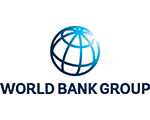
The World Bank Group has set two goals for the world to achieve by 2030: End extreme poverty by decreasing the percentage of people living on less than $1.90 a day to no more than 3%; and Promote shared prosperity by fostering the income growth of the bottom 40% for every country. It is a vital source of financial and technical assistance to developing countries around the world. The World Bank Group has played a pioneering role in engendering the carbon market, and so far utilized over $2 billion in promoting carbon mitigation projects, including in Africa. The World Bank Group's participation in the Africa Carbon Forum is being coordinated by the Climate Change CCSA, through the CF-Assist Program.
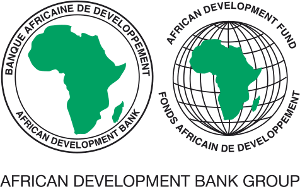
is a multilateral development finance institution with the overarching objective of fostering sustainable economic development and social progress in its Regional Member Countries (RMCs), thereby contributing to poverty reduction. The Bank achieves this objective by mobilizing and allocating resources for investments in its RMCs and providing policy advice as well as technical assistance to support development efforts. The AfDB is presently the largest financier of clean energy on the African continent, having channeled USD 12 Billion in financing for renewable energy, energy efficiency, sustainable transport, sustainable natural resources management and climate proofing of critical infrastructure between 2011 to 2015 during the implementation of its first Climate Change Action Plan.
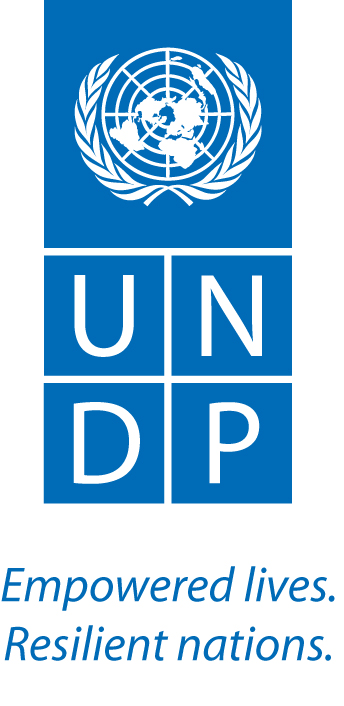
is the United Nations' global development network that works in some 170 countries and territories around the world, helping to achieve the eradication of poverty and the reduction of inequalities and exclusion. Headquartered in New York, UNDP work focuses on three main areas (i) inclusive growth and sustainable development (ii) democratic governance and peacebuilding and (ii) climate and disaster resilience. UNDP also encourages the protection of human rights and empowerment of women in all its programmes. UNDP advocates for change and connects countries to knowledge, experience and resources to help people build a better life. It achieves this through providing expert advice, training and grants support to developing countries, with increasing emphasis on assistance to the least developed countries. UNDP participation in the 2017 Africa Carbon Forum is being coordinated by the UNDP Regional Service Centre for Africa based in Addis Ababa.United Nations Development Programme
Contact: Daisy Mukarakate, [email protected]
The Africa LEDS Partnership (AfLP) is a network of individuals and organizations that is working towards a prosperous, climate-resilient Africa, with inclusive green growth, for the welfare of current and future generations. It promotes low-carbon, climate-resilient development to support poverty alleviation, job creation and environmental management in Africa. It does this by: promoting information exchange and coordination among LEDS programs and country institutions; cultivating and supporting LEDS champions across Africa, and enhancing capacities in the design and implementation of LEDS in Africa.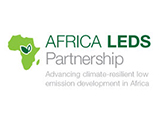
Africa LEDS Partnership
Contact: [email protected]
The West African Development Bank (BOAD) is the common development finance institution of the member countries of the West African Monetary Union (WAMU) with a mandate to promote development in West Africa and foster economic integration within the subregion. Member countries include Benin, Burkina, Côte d’Ivoire, Guinea Bissau, Mali, Niger, Senegal, and Togo. BOAD an international public institution whose purpose is to promote the balanced development of its Member States and foster economic integration within West Africa by financing priority development projects.West African Development Bank
Contact: Moukaila Moubarak, [email protected]
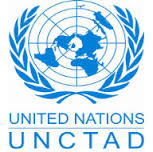
was established in 1964 and promotes the development-friendly integration of developing countries into the world economy. UNCTAD has progressively evolved into an authoritative knowledge-based institution whose work aims to help shape current policy debates and thinking on development, with a particular focus on ensuring that domestic policies and international action are mutually supportive in bringing about sustainable development. The organization works to fulfill this mandate by carrying out three key functions: (1) It functions as a forum for intergovernmental deliberations, supported by discussions with experts and exchanges of experience, aimed at consensus building; (2) It undertakes research, policy analysis and data collection for the debates of government representatives and experts and (3) It provides technical assistance tailored to the specific requirements of developing countries, with special attention to the needs of the least developed countries and of economies in transition. When appropriate, UNCTAD cooperates with other organizations and donor countries in the delivery of technical assistance.
The 11th Africa Carbon Forum (ACF) offers a comprehensive programme for project developers and policymakers on the latest investment, finance and development opportunities relating to climate change.